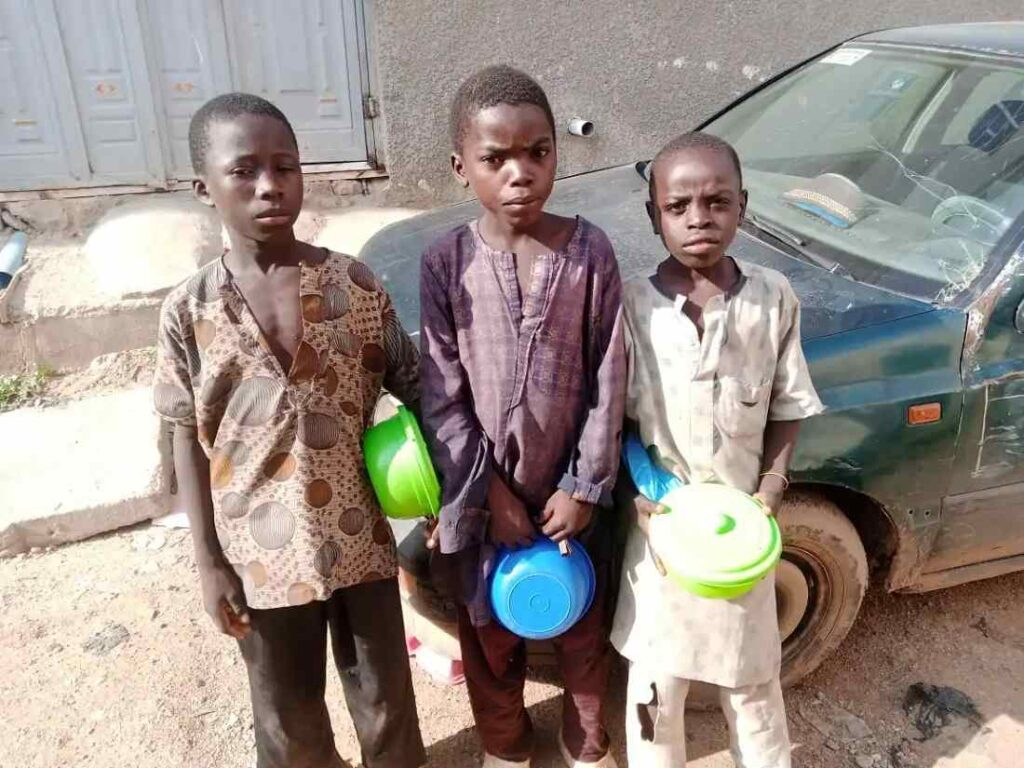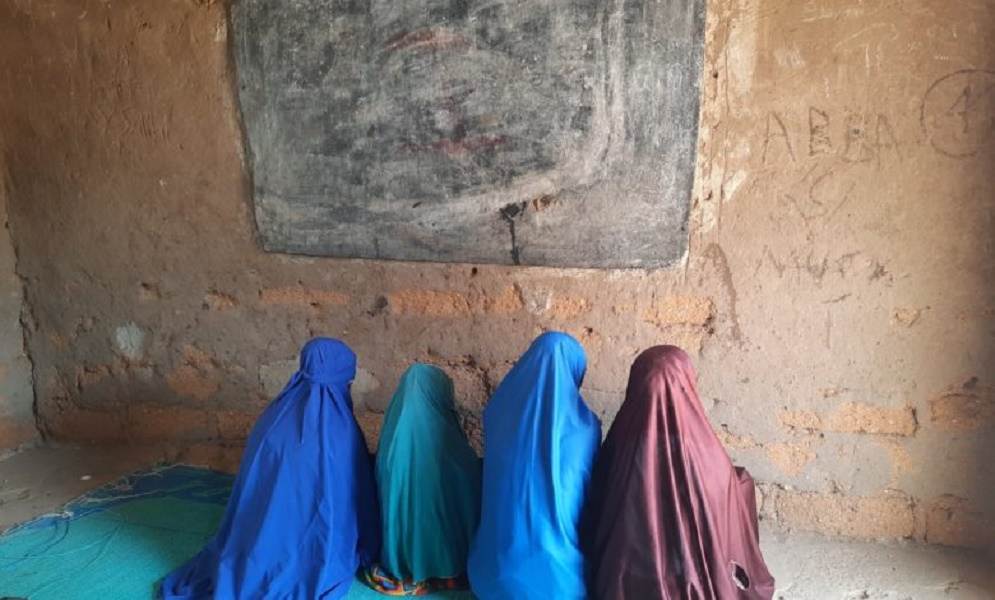
Almajiranci refers to the traditional Islamic education system in Nigeria predominantly found in the Northern region. It is a system of education that encourages parents to abandon parental responsibility in educating their children, leaving the task to the attached Islamic school. The practice involves young boys (known as Almajiri) or young girls (known as Almajira) being sent to Islamic schools to receive religious instruction from a teacher.
The term, “Almajiri” has its roots in the Arabic word “al-Muhājir” which refers to a person who migrates from his home in search of Islamic knowledge. However, the term has since been used in Nigeria to describe a young person who does not attend school.
The Almajiri children are predominantly found in the Northern part of Nigeria, where the population is largely composed of conservative Muslims. The traditional Almajiri system is rooted in the cultural and religious practices of Northern Nigeria. According to official statistics, an estimated 8.5 million children attend Islamic schools in Northern Nigeria. About 69% of the 13.4 million out-of-school children in Nigeria are from Northern Nigeria. In 2020, during the COVID-19 pandemic, the government of Kano state revealed that it could not take care of the over 5 million Almajiri children in the state.
The Almajiranci system places a lot of emphasis on religious enlightenment rather than all-round learning. As such, this system leaves a lot to be desired. Pushing religion as the main source of knowledge and enlightenment creates a breeding ground for all sorts of fanatics. Critics of the almajiranci system believe that it fuels the radical indoctrination of young minds thus rendering them susceptible to recruitment by terrorist cells. Boko Haram and other extremist groups have targeted Almajiri children for recruitment, exploiting their religious devotion and lack of alternative education. Radicalized Almajiri youths have been implicated in terrorist activities contributing to regional instability and violence.
The almajiranci system also promotes youth delinquency and poverty. Many Almajiri children receive little to no formal education. This limits their future opportunities. Not only that, the Mallams also fail to teach the children entrusted to them quality vocational skills. The traditional and non-formal almajiranci system bases all of its teachings on the Quran, leaving a wide gap in formal education that is never filled. And so, because the Almajiri children lack education and marketable vocational skills they are left impoverished and stuck in a never-ending cycle of poverty.
The Mallams in charge of teaching the Almajiri Islamic lessons do not receive a salary, and so, the burden of catering for them financially falls on the young shoulders of the children left in their care. The Almajiri children wear tattered clothing and beg for food or money on the streets. Begging and child labour took so much of these children’s time they barely had any left for the study they originally came for.
In an interview with UNICEF, a former Almajiri boy named Abdulkarim said:
“We would go to bed at 6 a.m. and return at 7 a.m. We would go out again at 11 a.m. and return for prayers at 2 p.m. Finally, between 6 p.m. and 8 p.m., we were back on the streets again, begging.”
Abdulkarim goes on to say:
“I don’t miss it at all. Life as an Almajiri was very tough. I had to fend for myself, watch over myself, be my own security, and beg to support myself. I never enjoyed being an Almajiri. It exposes one to so many dangers and it is very difficult.”
Almajira, that is, girls stuck in the almajiranci system, are also very vulnerable. Many of them experience assault, both sexual and physical, and are at risk of being pushed into child marriage. Some of the Almajira are even hired out to work as housemaids.

Abdulganiyu Abubakar, coordinator of the West African Network (WAN) for the Protection of Children, said:
“It is gaining momentum now. Some women are bringing the girls and they are giving them out as house help and collecting the pay, but they are camouflaging that they are coming to study the Quran and all that, it is very exploitative.”
In Sokoto State, Nigeria, several people were arrested because the Almajira in their care were being subjected to child labour.
As for the parents of the children subjected to the Almajiranci system, many of them are dirt poor and have no means to take care of their children. Some of the parents of Almajiri children are beggars themselves.
In another interview, Halima, the mother of an Almajira girl, said:
“All we get is what we manage to buy food with and something to close ourselves with. We scarcely make more than a thousand naira a day. The way food is so expensive, how are we meant to feed our whole family with it? All it does for us is stop us from dying of hunger.”
Many parents of the Almajiri children believe they are doing the right thing by providing their children with moral and religious education. They believe they are doing what Allah desires and feel fulfilled with their action, paying zero attention to the reality the children face.
The Almajiri issue in Nigeria remains a complex and pressing challenge that requires a multifaceted approach. While efforts made by some leaders and charity agencies to improve the system are commendable and have yielded significant results, the bulk of the problem persists. To effectively address this issue, a concerted effort that includes widespread policy reforms, increased investment in education, social welfare programs, and community engagement is needed.
Collaboration between state and federal governments, as well as non-governmental organizations, is essential to create sustainable solutions. By providing these children with the education and opportunities they deserve, Nigeria can work towards a future where every child has the chance to thrive and contribute positively to society.


